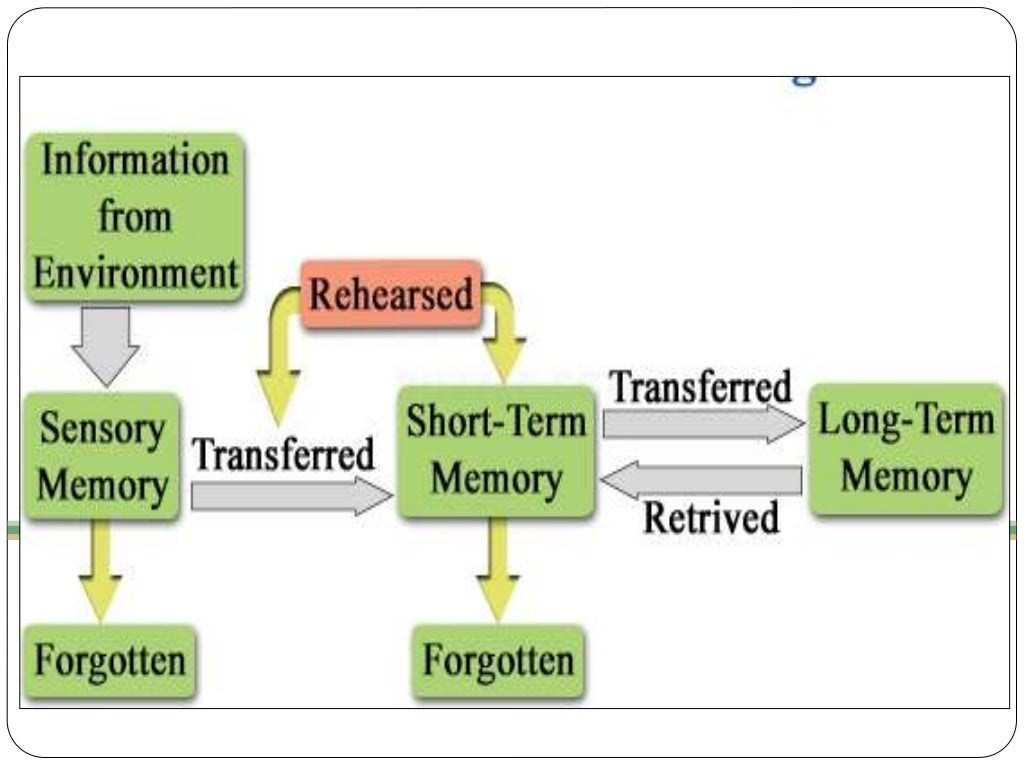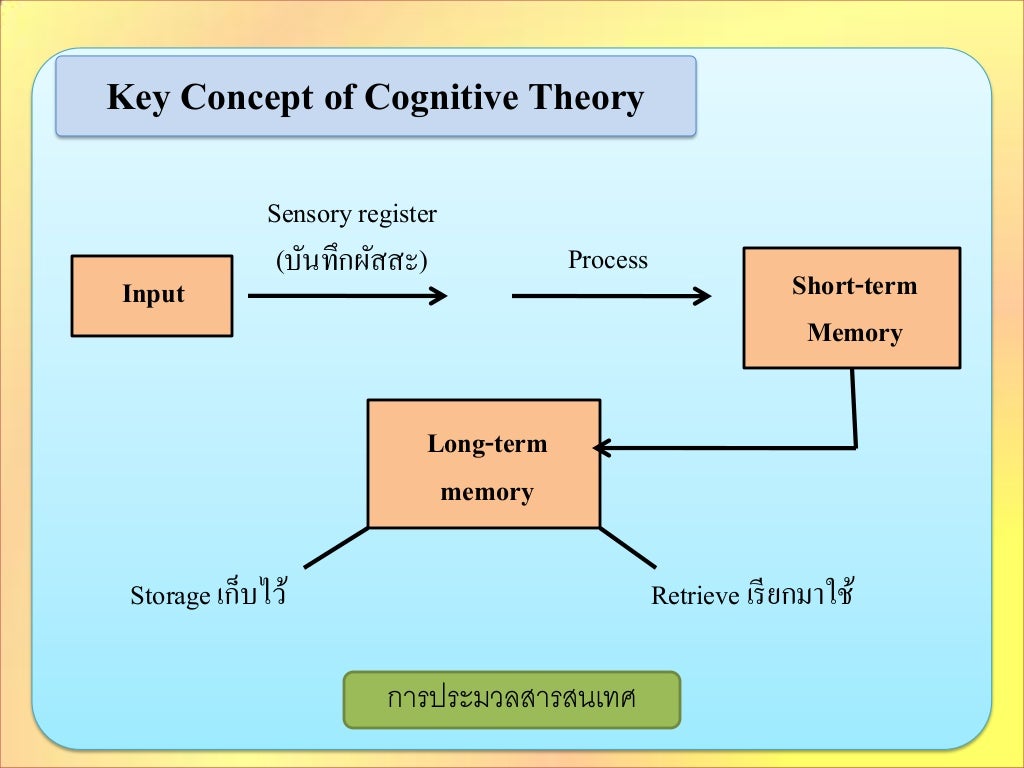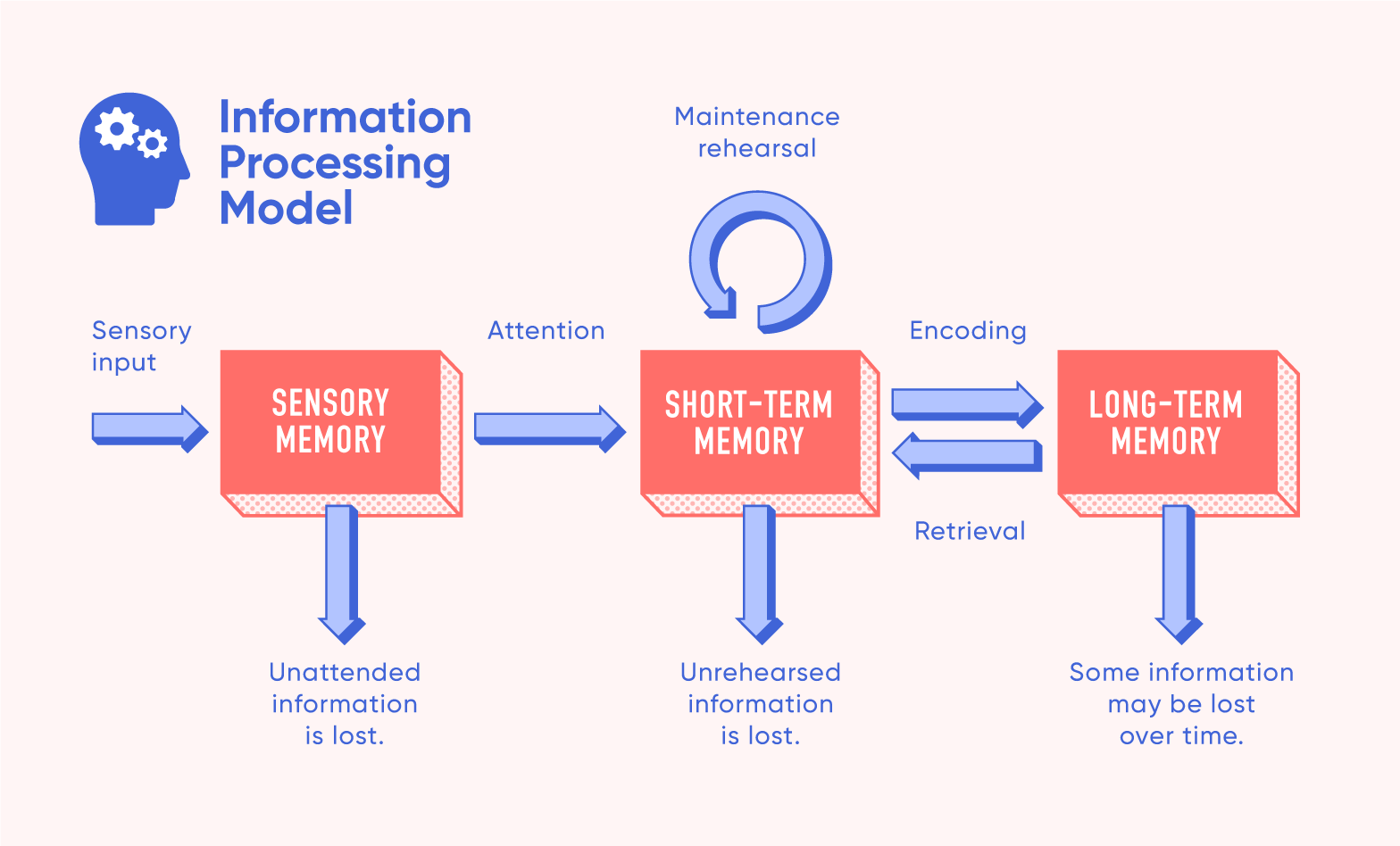Information processing theory memory model encoding term long into training
Table of Contents
Table of Contents
Information Processing Theory is a well-known concept in psychology that has been researched and studied for decades. It revolves around how individuals process, store, and recall information from their environment. If you want to have a deeper understanding of how the mind works and how information is processed in the brain, then Information Processing Theory is definitely worth exploring.
Have you ever experienced information overload, where your brain just can’t seem to handle any more input? Or maybe you’ve struggled to focus on a complex task for an extended period of time? These are common pain points related to information processing that we all face. Understanding the underlying causes of these difficulties can help alleviate them.
The target of Information Processing Theory is to explore how we acquire, process, and use information. Its main focus is on how the brain encodes, stores, and retrieves information. This includes everything from sensory input to short-term and long-term memory.
To summarize, Information Processing Theory is a psychological concept that explores how individuals process, store, and recall information from their environment. By understanding this theory, individuals can gain a deeper understanding of their own mindset and thought processes.
Understanding Information Processing Theory and its Target
When I started my undergraduate degree in psychology, I was fascinated by the concept of Information Processing Theory. It was amazing to learn about how the mind processes information and how different factors, such as attention and experience, can impact our ability to process and store information. According to this theory, the mind is like a computer that takes in information, processes it, and then stores it for later use.
One of the key concepts in Information Processing Theory is the idea of attention. Attention is the process by which we selectively focus on certain aspects of our environment while ignoring others. It plays a crucial role in information processing because it determines which stimuli are processed and which ones are ignored. For example, if you’re trying to study in a noisy environment, your attention might be easily distracted by the noise, interfering with your ability to process and store the information you’re trying to learn.
Another critical aspect of Information Processing Theory is the concept of memory. Memory is the process by which information is encoded, stored, and retrieved. There are several types of memory, including sensory memory, short-term memory, and long-term memory. Each type of memory serves a specific purpose, and understanding how they work can help individuals improve their ability to process and recall information.
The Impact of Experience on Information Processing Theory
Experience is another significant factor that impacts Information Processing Theory. We learn and grow from our experiences, and this impacts how we process and store information. According to this theory, the more experience we have with a particular task or topic, the more efficient our brains become at processing and recalling that information.
For example, if you’re learning to play the piano for the first time, it might be challenging to focus on the individual notes and rhythm. Over time, however, as you gain more experience and practice, your brain becomes more adept at processing the music and recalling it from memory. The same principles apply to other areas of life, from learning a new language to improving your skillset in the workplace.
The Role of Perception in Information Processing Theory
Perception is one of the fundamental building blocks of Information Processing Theory. Perception involves organizing and interpreting sensory information from the environment, such as sight, sound, and touch. Essentially, it’s the process by which we make sense of the world around us.
One of the most critical factors that impact perception is the individual’s past experiences, expectations, and emotions. For example, a person who has had a traumatic experience with dogs might perceive all dogs to be dangerous, even if they’re friendly and safe. By acknowledging these factors and learning how to distinguish between accurate and inaccurate perceptions, individuals can improve their information processing capabilities.
Improving Information Processing Skills with Practice
Improving your information processing abilities requires time, effort, and practice. The more you practice, the more efficiently your brain becomes at processing and recalling information. Strategies such as repetition, chunking, and visual aids can also help improve your skills. By continually working to improve information processing abilities, you can better understand your own mindset and thought processes.
Question and Answer
Q: What are the different types of memory?
A: The different types of memory are sensory memory, short-term memory, and long-term memory.
Q: What is attention, and how does it impact Information Processing Theory?
A: Attention is the process by which we selectively focus on certain aspects of our environment while ignoring others. Attention plays a crucial role in Information Processing Theory because it determines which stimuli are processed and which ones are ignored.
Q: What is perception, and how does it relate to Information Processing Theory?
A: Perception is the process by which we organize and interpret sensory information from the environment. Perception plays a significant role in Information Processing Theory because it impacts how we make sense of the world around us and how we encode, store, and retrieve information.
Q: How can individuals improve their information processing skills?
A: Individuals can improve their information processing skills through strategies such as repetition, chunking, and visual aids. By continually working to improve these skills, individuals can gain a deeper understanding of their own mindset and thought processes.
Conclusion of Define Information Processing Theory
Information Processing Theory is an essential concept that explores how individuals process, store, and recall information from their environment. By understanding the underlying principles of this theory, individuals can improve their ability to process and recall information, better understand their own mindset and thought processes, and function more effectively in their daily lives. By continually working to improve information processing skills, individuals can gain a competitive edge in today’s fast-paced and ever-changing world.
Gallery
Model Of Information Processing Starting At Environmental Input

Photo Credit by: bing.com / cognitive theory processes
Information Processing Theory

Photo Credit by: bing.com / theoretical
Information Processing Model - YouTube

Photo Credit by: bing.com / processing information model
Information Processing Theory

Photo Credit by: bing.com / processing
What Is Information Processing Theory? - LearnUpon

Photo Credit by: bing.com / information processing theory memory model encoding term long into training






